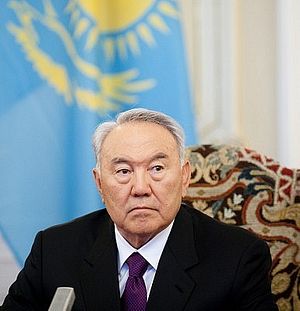The June 5 Aktobe shootout is not the first incident of anti-government unrest in Kazakhstan to end in bloodshed. In 2011, security forces shot into a crowd of protesters in Zhanaozen. Both events shocked observers who see Kazakhstan as a beacon of regional stability. Yet President Nursultan Nazarbayev’s more aggressive rhetoric over the recent Aktobe incident does not bode well for liberalism in Kazakhstan.
At present, both the Aktobe and Zhanaozen events appear to be products of domestic anti-government sentiment, rather than the activities of transnational terrorists. After months of protesting economic conditions in Zhanaozen, demonstrators who stormed the stage of an Independence Day celebration were met with force by security services. In Aktobe, the unidentified group stole hunting equipment and attacked security forces. Neither of these events were characteristic of radical Islamic terrorism experienced elsewhere on the continent.
Although Nazarbayev first blamed vague bandit elements for the 2011 Zhanaozen incident, he later acknowledged that the demonstrators were protesting economic grievances. He did not frame the Zhanaozen incident as Islamist extremism, even as a spate of terrorist attacks that year provided ample pretext. As a sign of acknowledgement, he also dismissed Timur Kulibayev from his position as head of the sovereign wealth fund Samruk-Kazyna over the incident and promised relatively light prosecution of the protesters. (Though some were allegedly tortured.) Typical of Kazakhstan’s “multi-vector” foreign policy, he did not endorse the outlandish theories of foreign conspiracy floated by various voices; one Shanghai Cooperation Organization researcher even argued that then U.S. Secretary of State Hillary Clinton had funded and armed Kazakh “militants” on a trip to Uzbekistan.
In contrast, Nazarbayev’s public statement on the Aktobe incident, released June 8, pins the unrest explicitly on terrorism, extremism, and radicalism. Nazarbayev claimed that “the terrorist act was organized by followers of radical pseudo-religious currents.” He warned: “We will take strong measures against any actions by extremists and terrorists. The state has all the potential and power to do this.”
There is precedent for Kazakhstan citing terrorism overzealously. In 2012, Nazarbayev blamed the death of 14 border guards along the Kazakh-Chinese border on terrorism – an unlikely explanation for a bizarre tragedy in a remote region. Analysts also suspect counterterror operations serve as a guise for political repression. However, Aktobe is the first incident of public unrest Nazarbayev has tied so explicitly to extremism and radicalism.
In the Aktobe statement, Nazarbayev also stepped up his rhetoric against outside influence. Although he blamed foreign financiers in both the Aktobe and Zhanaozen incidents, as well as recent land reform protests, his recent statement warned against a “Color Revolution” in Kazakhstan: “In those countries where [Color Revolutions] happened, today there is no state, no stability — there is rampant poverty, banditry and the conditions for the emergence of extremists and terrorists.” He claimed that Kazakhstan is afflicted by “contrived rallies, murder, and a desire to seize power.” This sweeping missive is quite at odds with his confident dismissal of the “isolated” 2011 Zhanaozen incident, provoked by “hooligans” who should be “grateful of the state.”
The messages from the government on Aktobe are crisscrossing and confused: who masterminded the attack — the Russian-backed dissenter Tokhtar Tuleshov the government says was behind the Land Protests or mysterious “third forces” from the West? That Nazarbayev has responded by condemning stirrings for a “Color Revolution” betrays his anxiety over regime instability. Fear of regime change often feeds a repressive crackdown. Nazarbayev’s Aktobe statement, more typical of some of his southern neighbors, could mark a tighter grip on civil and political liberties.
William Beacom is a Visiting Scholar at the American University of Central Asia, Bishkek, Kyrgyzstan and the Sachs Global Scholar at Princeton University, United States.

































